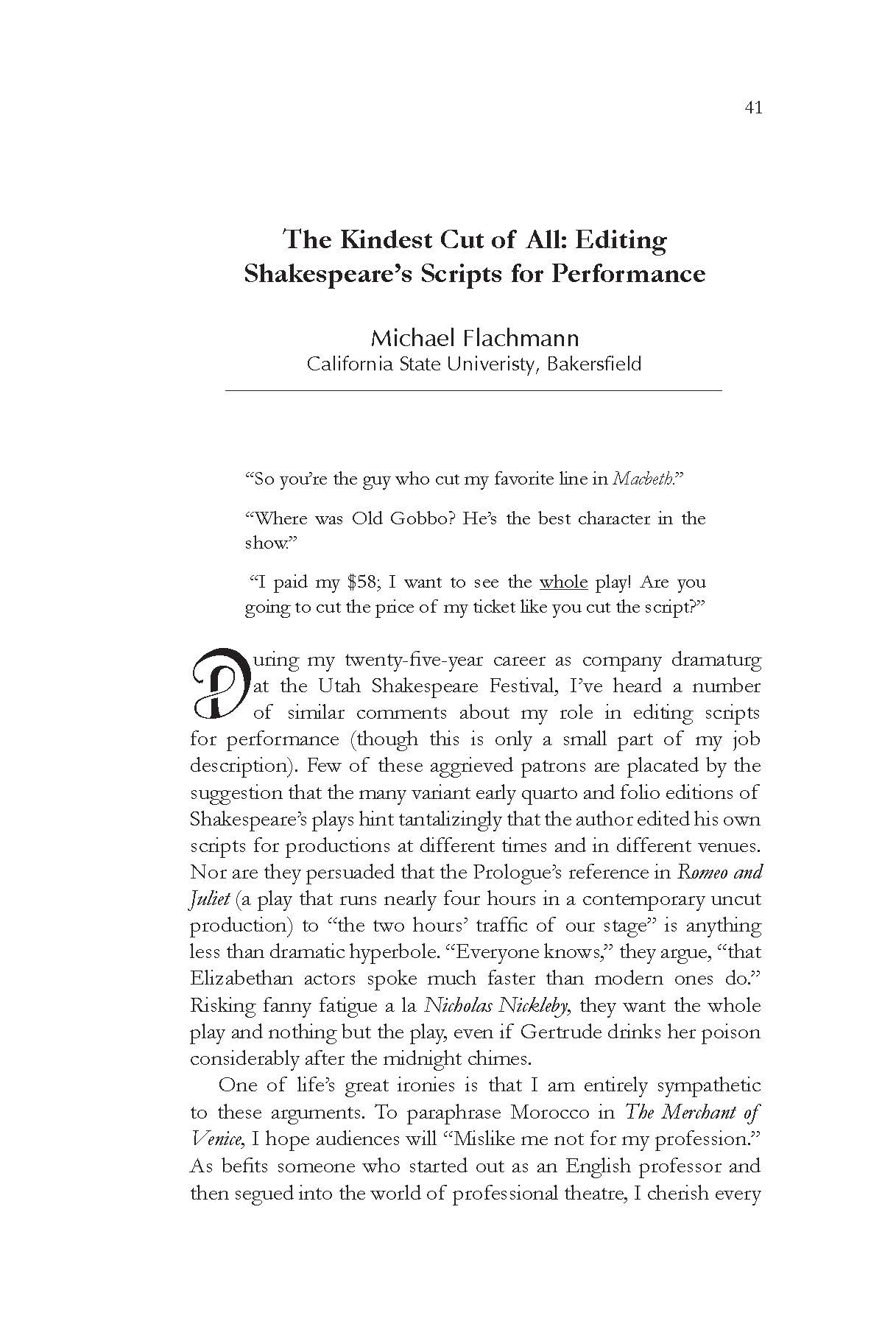The Kindest Cut of All: Editing Shakespeare’s Scripts for Performance
Main Article Content
Abstract
During my twenty-five-year career as company dramaturg at the Utah Shakespeare Festival, I’ve heard a number of similar comments about my role in editing scripts for performance (though this is only a small part of my job description). Few of these aggrieved patrons are placated by the suggestion that the many variant early quarto and folio editions of Shakespeare’s plays hint tantalizingly that the author edited his own scripts for productions at different times and in different venues. Nor are they persuaded that the Prologue’s reference in Romeo and Juliet (a play that runs nearly four hours in a contemporary uncut production) to “the two hours’ traffic of our stage” is anything less than dramatic hyperbole. “Everyone knows,” they argue, “that Elizabethan actors spoke much faster than modern ones do.” Risking fanny fatigue a la Nicholas Nickleby, they want the whole play and nothing but the play, even if Gertrude drinks her poison considerably after the midnight chimes.
